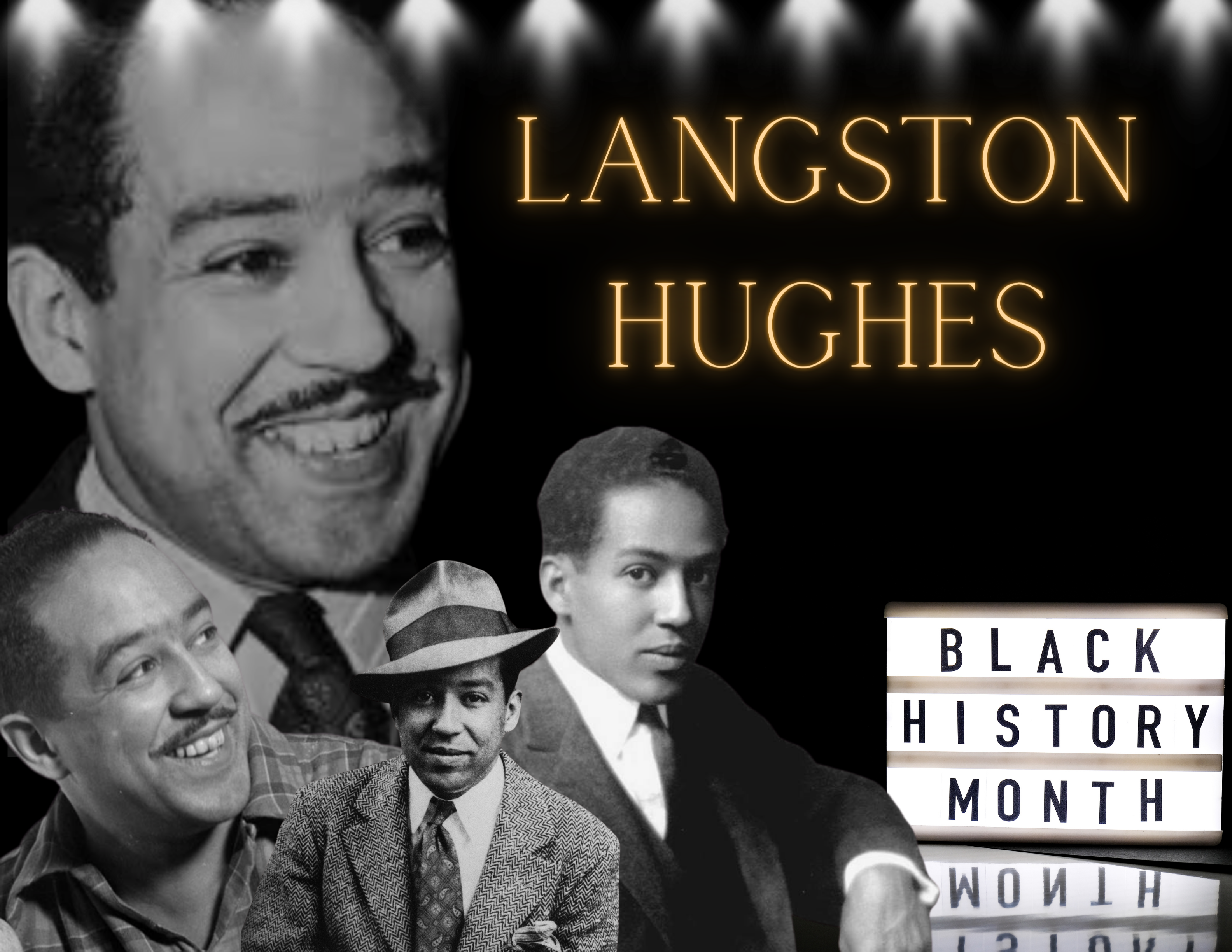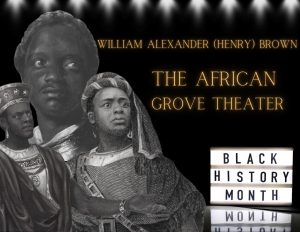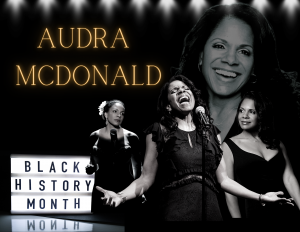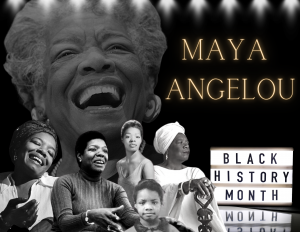
Langston Hughes, 1902 – 1967, was an American poet, social activist, novelist, playwright, and columnist from Joplin, Missouri. One of the earliest innovators of the art form called “Jazz Poetry. Hughes is best known as a leader of the Harlem Renaissance.
Early Life
Langston Hughes was born James Mercer Langston Hughes on February 1, 1902, in Joplin, Missouri. His parents, James Hughes and Carrie Langston, separated soon after his birth, and his father moved to Mexico. While Hughes’ mother moved around during his youth, Hughes was raised primarily by his maternal grandmother, Mary, until she died in his early teens. From that point, he went to live with his mother, and they moved several times before eventually settling in Cleveland, Ohio. It was during this time Langston began to write. Hughes was a regular contributor to his school’s literary magazine and frequently submitted to other poetry magazines, although they would ultimately reject his work.
Harlem Renaissance
After Hughes graduated from high school in 1920 and spent the following year in Mexico with his father. It was at this time, Hughes’ poem, “The Negro Speaks of Rivers,” was published in The Crisis magazine and was highly praised. In 1921 Hughes returned to the United States and enrolled at Columbia University where he studied briefly, and during which time he quickly became a part of Harlem’s growing cultural movement, what is commonly known as the Harlem Renaissance. However, Hughes dropped out of Columbia in 1922 and worked a number of odd jobs around New York for the following year before signing on as a steward on a freighter that took him to Africa and Spain. He left the ship in 1924 and lived for a brief time in Paris, where he continued to develop and publish his poetry.
After Hughes returned to the United States in late 1925, he put three of his own poems beside the plate of Vachel Lindsay in the dining room of the Wardman Park Hotel in Washington, D.C., where he was working as a busboy. The next day, newspapers around the country reported that Lindsay, among the most popular white poets of the day, had “discovered” an African American busboy poet, which earned Hughes broader notice. Hughes received a scholarship to and began attending Lincoln University in Pennsylvania in early 1926. Within that same year, he received the Witter Bynner Undergraduate Poetry Award, and he published “The Negro Artist and the Racial Mountain” a manifesto in which he called confident, uniquely Black literature.
While studying at Lincoln, Hughes’ poetry came to the attention of novelist and critic, who used his connections to help get Hughes’ first book of poetry, The Weary Blues, published by Knopf in 1926. The book had popular appeal and established both his poetic style and his commitment to Black themes and heritage. Hughes was also among the first to use jazz rhythms and dialect to depict the life of urban Black people in his work. He published a second volume of poetry, Fine Clothes to the Jew, in 1927.
‘Not Without Laughter’
After his graduation from Lincoln in 1929, Hughes published his first novel, Not Without Laughter. The book was commercially fortunate enough to convince Hughes that he could sustain a living as a writer. In the 1930’s he turned his poetry more forcefully toward racial justice and political radicalism. He traveled in the American South in 1931 and decried the Scottsboro case; he then traveled widely in the Soviet Union, Haiti, Japan, and served as a newspaper correspondent during the Spanish Civil War. He published a collection of short stories, The Ways of White Folks (1934), and became deeply involved in theater. His play Mulatto, adapted from one of his short stories, premiered on Broadway in 1935, and productions of several other plays followed as well as, one of his most celebrated poems, “Let America Be America Again“ in Esquire, which examined the unrealized hopes and dreams of the country’s lower class and disadvantaged, expressing a sense of hope that the American Dream would one day arrive. Hughes would later revise and republish “Let America Be America Again” in a small anthology of poems called A New Song in the late 1930’s. He also founded theater companies in Harlem (1937) and Los Angeles (1939). In 1940 Hughes published The Big Sea, his autobiography up to age 28. Also around this time, Hughes began contributing a column to the Chicago Defender, for which he created a comic character named Jesse B. Semple, better known as “Simple,” a black everyman that Hughes used to further explore urban, working-class Black themes, and to address racial issues. The columns were highly successful, and “Simple” would later be the focus of several of Hughes’ books and plays.
In the late 1940’s, Hughes contributed the lyrics for a Broadway musical titled Street Scene, which featured music by Kurt Weill. The success of the musical would earn Hughes enough money that he was finally able to buy a house in Harlem. Around this time, he also taught creative writing at Atlanta University (today Clark Atlanta University) and was a guest lecturer at a university in Chicago for several months. He also wrote his second volume of autobiography, I Wonder As I Wander, which was published in 1956.
Langston’s Personal Life
Hughes never married, nor was he romantically linked to any of the women in his life. Some have speculated that he may have been homosexual, but due to that time, era, and social climate Hughes kept his sexuality a secret.
Langston Hughes died of complications from prostate cancer on May 22, 1967, in New York City. In his memory, his residence at 20 East 127th Street in Harlem has been given landmark status by the New York City Preservation Commission, and East 127th Street has been renamed “Langston Hughes Place.”
In addition to leaving us a large body of poetic work, Hughes wrote eleven plays and countless works of prose, including the well-known “Simple” books: Simple Speaks His Mind (1950); Simple Stakes a Claim (1957); Simple Takes a Wife (1953); and Simple’s Uncle Sam (1965). He edited the anthologies The Poetry of the Negro and The Book of Negro Folklore, wrote an acclaimed autobiography, The Big Sea (1940), and cowrote the play Mule Bone (1991) with Zora Neale Hurston.
Here a list of some of Langston Hughes most popular poems.
- “The Negro Speaks of Rivers” (1921) …
- “Mother to Son” (1922) …
- “Dreams” (1922) …
- “The Weary Blues” (1925) …
- “Po’ Boy Blues” (1926) …
- “Let America Be America Again” (1936) …
- “Life is Fine” (1949) …
- “I, Too, Sing America” (1945)
https://www.britannica.com/biography/Langston-Hughes



